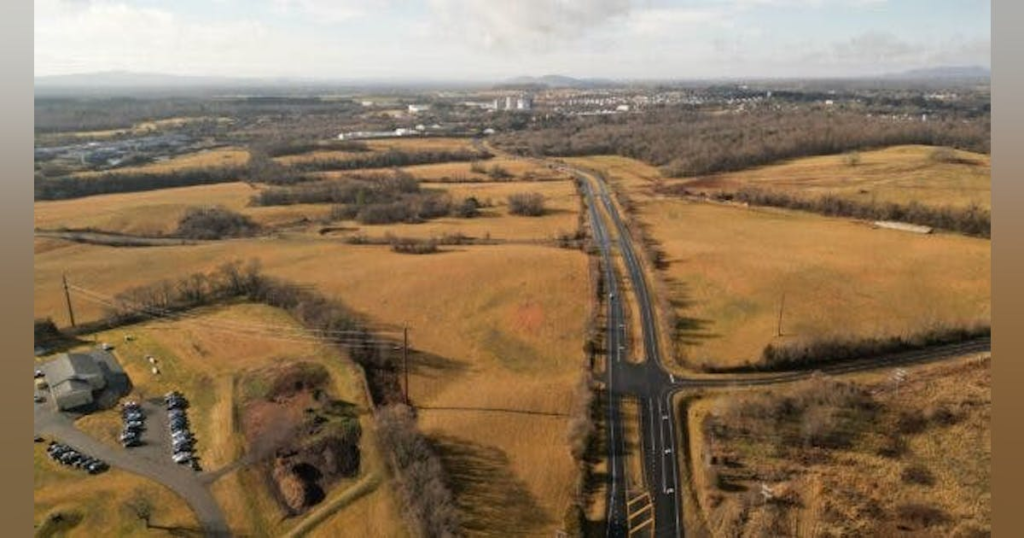Earlier this year, Culpeper, a small town and county seat in Virginia, announced the creation of the Culpeper Tech Zone (CTZ).
CTZs are predefined parcels of land totaling 690 acres (just over one square mile) that leverage the area's existing infrastructure and place all data center development within one designated area.
The creation of CTZ is expected to avoid data center sprawl and the constant battles with local communities and governments that define data center development in Northern Virginia.
In 2021, the Culpeper County Economic Development Department (CCED) developed a plan to attract data centers to the county while limiting sprawl to protect the area's aesthetic and residential appeal.
The county already has five different incentive tech zones dedicated to these companies.
As the Culpeper County Board of Supervisors learned more about the power and fiber resources needed to support the highly engineered data center, they realized that consolidating the five zones into one would allow them to concentrate the resources needed at the facility without having to extend power lines throughout the county.
Gaining momentum
The push for this idea has already started to gain momentum, with five developers already working on it: Cielo Digital Infrastructure, CloudHQ, Copper Ridge, DataBank, and Peterson Companies.
Each company has secured land within the zone and is in various stages of early development, including submitting site plans that outline how many data centers they plan to build on their parcels.
A more established technology company can easily request enough space for an entire data center building, but a smaller business might only need a few rows of servers in a single facility.
“A lot of these venues are doing something different,” notes Brett Barnett, director of development at CloudHQ, as quoted in the CTZ blog.
“One facility might be dedicated to government cloud storage. Another is entirely dedicated to artificial intelligence (AI) and machine learning, where you can type a question into an AI engine and it might give you something useful back. They're not all the same, but they essentially store and process some kind of data.”
Construction on the CTZ has not yet been completed, but Brian Rothamel, a certified economic developer and director of CCED, said, “We wanted to focus on quality, not quantity, of partnerships.”
Last month, Rothamel sat down with Data Center Frontier to discuss his reasons for developing CTZ.
Rothamel highlighted the benefits of concentrating data center development in a single technology zone to streamline energy and zoning processes and maximize community benefits.
A good start
He also discussed the history and current state of data centers in Culpeper County, including data center operators Swift and Equinix.
The experience of having data centers already developed in areas currently designated as technology zones has given CCED a good start in designing the operational parameters for the CTZ.
The experience also shed light on the community's strategic plan for attracting more data centers, while taking into account energy infrastructure and zoning regulations.
Rothamel confirmed that technology zones are a by-rights program established by county ordinance. Benefits of building in a technology zone include tax incentives for technology-based businesses and increased building heights.
Community and industry commitment
Rothamel also highlighted the ongoing efforts to develop the CTZ, saying developers are not the only ones inquiring about potential project sites.
He said the work beyond that point is already underway and includes purchasing land, zoning permits and applying for power with utilities such as Dominion Energy and Rappahannock Electric Corp.
He also noted that public hearings on data centers in tech zones have faced less opposition than those outside the zones because the tech zones are aligned with the community's comprehensive economic development plan.
Rothamel also noted that all of the land transactions that make up the CTZ are privately conducted, with the county assisting with marketing and rezoning efforts.
When the issue of connectivity was raised, Rosmel informed us that the town was previously home to a large Federal Reserve Bank building and that significant connectivity infrastructure was already in place.
The Culpeper Technical Education Center (CTEC) and Germanna Community College work in partnership with CCED to provide opportunities for high school and college students. Enter the trade and information technology sector and work within the technology zone.
This is all part of CCED’s ongoing efforts to plan construction logistics and workforce development to ensure our community is prepared.
When asked about electricity supply, Rosmel pointed to the aforementioned plans from Dominion Energy and Rappahannock Electric Corp.
He explained that each development would need its own substation, and since substations would be limited to 300 megawatts each, greater power demands would require multiple substations.
Future outlook
The Culpeper Tech Zone offers a model for how other communities can attract data center development by defining boundaries, getting community buy-in and building on existing strengths.
Construction of the CTZ is expected to begin within the next two to three years and be completed in the 2030s.
“We are currently preparing for this massive undertaking and are seeking vendors in Culpeper to assist with construction so that all of the effort can be local,” said Rothamel. “As development progresses, so do we forge partnerships with Culpeper, the data center and the community at large.”
He added, “We sought to acquire a partner that knows Culpeper and actively understands how their business can contribute to the development of the community beyond just operating here. Our partner understands Culpeper and what we are trying to accomplish here.”
“Culpeper has an innovative approach to data center deployments,” said Justin Puccio, Databank's executive vice president of corporate strategy. “Databank anticipated a shift in enterprise and AI workload demand to the region, and Culpeper is especially well-suited to support the network and power requirements. Culpeper has been a seamless fit for us.”

